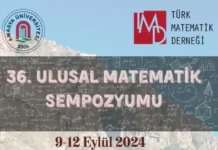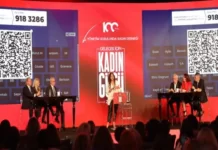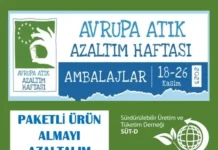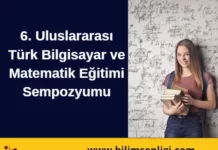2ND INTERNATIONAL CONFERENCE ON ISLAMIC ECONOMICS AND ECONOMIES OF THE OIC COUNTRIES (ICIE2)
Theme:
Islamic Economic Solutions for OIC Countries: Theory and Policy
Main Organizer:
Department of Economics
Kulliyyah of Economics and Management Sciences
International Islamic University Malaysia (IIUM)
Partner Institution:
Department of Economics
Faculy of Political Sciences
İstanbul Medeniyet University
Date: 29 – 30 January, 2013
Venue: Kuala Lumpur, Malaysia
CALL FOR PAPERS
As the world struggles to recover from increasingly frequent financial and economic crises, OIC countries have the opportunity to
embrace Islamic economics as an indigenous approach to guide their economic policy responses. However, for this to meaningfully
happen, both the Islamic theoretical foundations and their connections to policy making and implementation must be given greater
attention and be integrated. The theme for the 2013 conference is “Islamic Economic Solutions for OIC Countries: Theory and
Policy”. Specifically, papers are invited in the following tracks:
RESEARCH TRACKS
1. Critical Literature Surveys in Various Areas of Islamic Economics
2. Nature and methodology of Islamic Economics
3. Islamic Economic System and Islamic Economy
4. Islam and Poverty and Income Distribution
5. Entrepreneurship Development and Role of Women
6. The Islamic Approach and Instruments for Enhancing Financial Services for Micro and Medium-Sized Enterprises
7. Legal, Tax, Regulatory and Policy Framework from the Islamic Economic Perspective
8. Case Studies of the Muslim countries on Zakah- and Awqaf-based Social Safety-nets
9. Economic Indebtedness of the OIC Countries
10. Review of the Role of Islamic Development Bank in the Economic Development of the OIC Countries
11. Economic Cooperation among the OIC Countries for Infrastructure Development
12. Response of Islamic Economics to Regional/Global Economic and Financial Crises
13. Teaching Modules for Different Topics in Islamic Economics
Professional rigor is expected from the prospective paper-writers in the interest of enhancing the level of academic discourse in Islamic economics.
INTRODUCTION
The teaching of Islamic economics has made in-roads to many institutes of higher learning around
the globe, from Indonesia to England. This coincides with the development of the discipline and
the practice of Islamic economics, banking and finance over the last three decades. The
establishment of the OIC and IDB has also provided important avenues for the practical
implementation of programs aimed at increasing economic and financial cooperation among
member countries. While we can be proud of, and continue to develop Islamic Banking and
Finance, we must also admit that there is also growing skepticism that IBF cannot sustain itself
without theoretical foundations and that OIC countries will not adopt Islamic economics unless
viable connections be made to link policy to valid Islamic economic theory, and this journey of
linking theory and policy is only just starting. More serious work is needed to enhance the
theoretical and applied studies in Islamic economics, banking and economic cooperation among
Muslim countries. Realizing the importance of continuous assessment on the progress of the
discipline and the extent of its development and applications, ICIE2013 is organized. Taking the
state of the art and the direction of the field into account, we propose that this conference would
focus on the development of the discipline and its application in the economies of OIC countries.
The theme of the conference is ‘Islamic Economic Solutions for OIC Countries: Theory and
Policy’. As the world struggles to recover from increasingly frequent financial and economic crises,
OIC countries have the opportunity to embrace Islamic economics as an indigenous approach to
guide their economic policy responses. However, for this to meaningfully happen, both the Islamic
theoretical foundations and their connections to policy making and implementation must be given
greater attention and be integrated. ICIE2013 provides a platform to bring together both
academics and policy makers to discuss how greater effort can be made in this direction.
It is hoped that the papers presented in this conference will serve not only to evaluate our past
performance, but to also chart out possible directions to follow in the future, at both the theoretical
and policy levels. In addition, this conference will serve as a forum for academicians, policy makers
and implementers, practitioners, professionals, students and other interested parties to argue,
criticize, and discuss the various topics to be covered.
Focus will be on the following three major areas:
1. Islamic Economics
a. Islamic economic system and Islamic economy b. Theoretical and policy studies dealing with the development of Islamic economics and
finance
c. Comparative studies on the foundations and structure of existing economies as compared to
the Islamic model d. Literature surveys for use as teaching material at the university level
2. Policy issues confronting the OIC countries and how Islamic economics can be utilized to
provide real-world solutions to these challenges
a. Poverty and income distribution b. Entrepreneurship development and financial services for micro and medium-sized enterprises
(SMEs) c. Role of Muslim women in the economy d. Existing legal, tax and regulatory framework from the Islamic economic and finance
perspectives e. Use of zakah- and awqaf-based social safety-nets in Muslim countries f. Economic indebtedness of the OIC countries g. Role of Islamic Development Bank in economic development of the OIC countries
3. Islamic finance
a. Emerging issues in the area of Islamic banking and finance
b. Role of monetary policy c. Stability of the Islamic financial system d. Islamic response to regional/global economic and financial crises
2ND INTERNATIONAL CONFERENCE ON ISLAMIC ECONOMICS
AND ECONOMIES OF THE OIC COUNTRIES (ICIE2)
Theme:
Islamic Economic Solutions for OIC Countries: Theory and Policy
Papers presented in this conference should serve not only to evaluate past
performances in the area of Islamic Economics, but to also chart out possible
directions to follow in the future, at both the theoretical and policy levels. The
organizers hope that the conference will provide an effective platform for
academicians, practitioners, professionals, policy makers and implementers,
students and other interested parties to critically examine and discuss related
issues. The theme for the 2013 conference is “Islamic Economic Solutions for
OIC Countries: Theory and Policy”. As such, the conference’s focus will be on,
but not necessarily limited to, the following three major areas:
1. Islamic Economics
a. Islamic economic system and Islamic economy b critical review of theoretical and policy studies dealing with the
development of Islamic economics and finance
c. comparative studies of the foundations and structure of existing economies
as compared to the Islamic model d. literature surveys for use as teaching materials at university levels
2. Policy issues confronting OIC countries and how Islamic economics can be
utilized to provide real-world solutions to these challenges
a. poverty and income distribution b. entrepreneurship development and financial services for micro and
medium-sized enterprises (SMEs) c. role of Muslim women in the economy d. existing legal, tax, regulatory framework from the Islamic economic
perspectives e. use of zakah- and awqaf-based social safety-nets in Muslim countries f. economic indebtedness of the OIC countries g. role of Islamic Development Bank in the economic development of OIC
countries.
3. Islamic finance a. emerging issues relating to Islamic banking and finance
b. role of monetary policy c. stability of Islamic financial system d. Islamic Economics response to regional/global economic and financial
crises.
CONTACT US In case of question regarding submission, registration, payment, sponsorship, and other matters kindly use the following contact methods: E-mail : icie2013@gmail.com Telephone: 603-6196 4649
Correspondence Address:
Secretariat ICIE2 Department of Economics Kulliyyah of Economics and Management Sciences International Islamic University Malaysia P.O. Box 10 50728 Kuala Lumpur Malaysia.
















